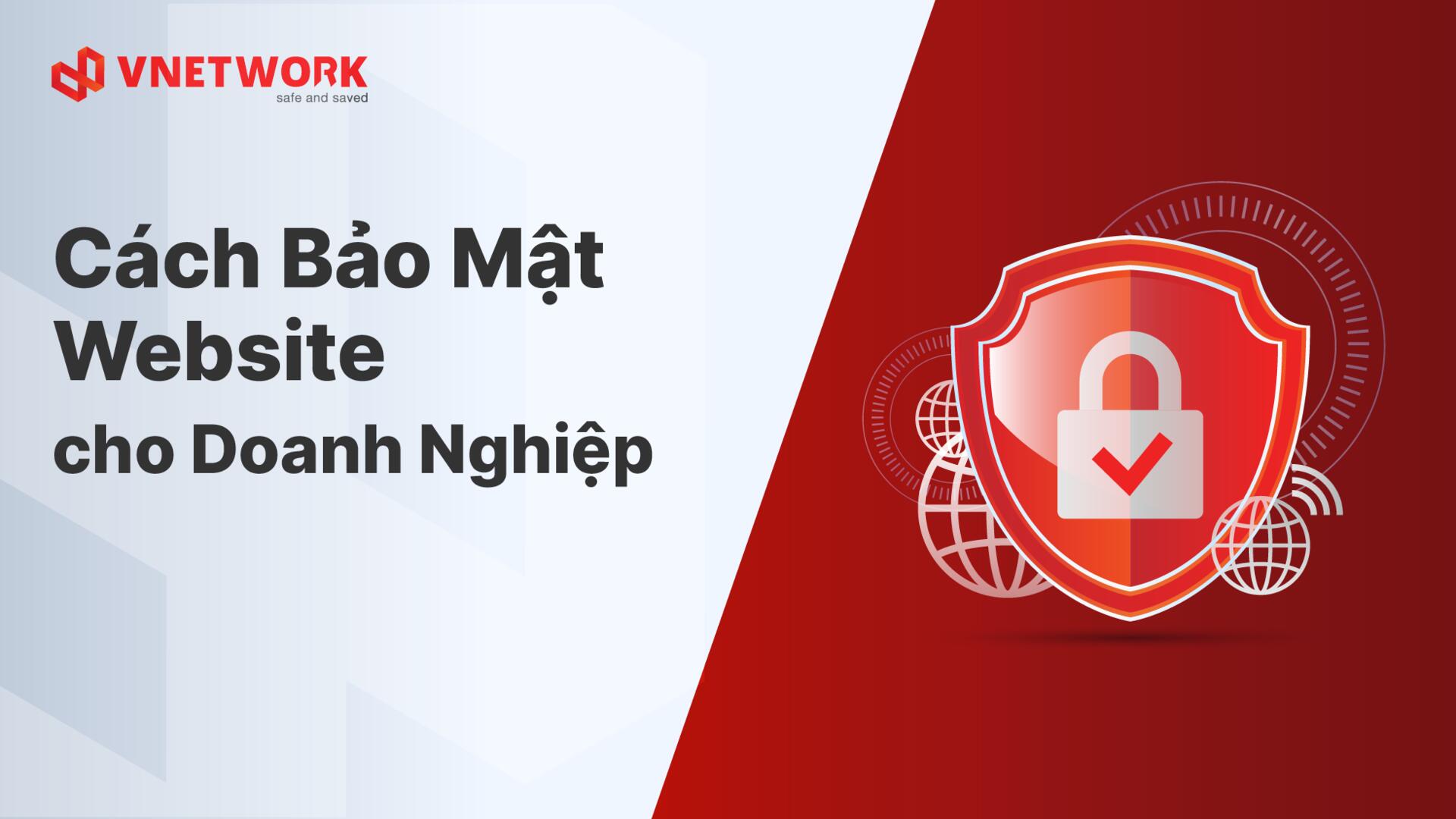What is website security?
Website security is a crucial task in ensuring a website's safety against cyber threats. The primary objectives of website security include:
- Ensuring information confidentiality and availability.
- Protecting user privacy.
- Preventing unauthorized access, attacks, and damage to the system.
To maintain a secure website, administrators must establish a robust security system and regularly assess the site's security status. A well-protected website operates smoothly, efficiently, and withstands cyberattacks.

What is website security?
Why is website security important?
Implementing website security measures is vital in cybersecurity, especially when a website is a key digital asset. A security breach can result in severe consequences:
- Data theft, leading to leaks of customers' personal information or critical business data (e.g., business strategies, company information).
- Operational disruptions, affecting website functionality.
- Negative impact on SEO rankings, causing keyword ranking losses and decreased visibility on Google.
- Loss of reputation, damaging the company’s image in customers' eyes.
- Interruption of online advertising campaigns, making it impossible to run linked marketing efforts.
Comprehensive and effective website security measures
1. Strengthening account security for website administrators
- Enhancing password security
A simple yet effective way to secure a website is to enforce strong passwords for administrators. Passwords should be changed regularly and include a mix of numbers, letters (both uppercase and lowercase), and special characters to create a strong defense against security breaches.

Enhancing password security
- Limiting failed login attempts
To prevent unauthorized users from guessing administrator passwords through brute force attacks, website administrators should set a maximum limit of five incorrect login attempts. If the limit is exceeded, access to the admin panel should be temporarily blocked.
- Enabling two-factor authentication (2FA)
Two-factor authentication (2FA) adds an extra layer of security by requiring an additional authentication code sent to the administrator’s mobile device. This ensures that only authorized personnel can access the website's admin account

Enabling two-factor authentication
2. Securing the website with HTTPS/SSL certificates
SSL (Secure Sockets Layer) is a leading security standard that ensures data confidentiality and integrity between a web server and a user's browser.
- Installing an SSL certificate boosts user confidence and trust in website security.
- HTTPS encryption prevents attackers from intercepting or modifying transmitted data.
- This security protocol protects login credentials and prevents session hijacking.

Securing the website with HTTPS/SSL certificates
3. Keeping software up to date
All software and platforms installed on a website must be regularly updated. Hackers frequently target vulnerabilities in outdated software, making frequent updates essential to patch security flaws.
4. Implementing automated data backups
Regular website backups ensure data recovery in case of an attack or system failure. Although web hosting services provide backups, businesses should maintain their own backups for added security.
5. Deploying a web application firewall (WAF)
A web application firewall (WAF) is an additional security layer that protects websites from common cyber threats such as:
- SQL injection
- Cross-site scripting (XSS)
- DDoS attacks
WAF filters and blocks malicious traffic, ensuring that only legitimate requests can access the site.

6. Securing the database
Databases and plugins are common entry points for cybercriminals. To prevent security risks:
- Regularly remove unused files, databases, and outdated applications.
- Structure file management efficiently to maintain control over changes
VNIS – The ultimate web/app/API security solution

VNIS is a leading website security solution trusted by top enterprises, offering advanced protection, unique technology, and superior service.
Key advantages of VNIS
1. Maximum protection against cyberattacks
- Comprehensive DDoS mitigation: Blocks sophisticated DDoS attacks at layers 3, 4, and 7, handling over 8 million CCU and processing 9 billion requests daily.
- Advanced web application firewall (WAF): Secures websites against OWASP Top 10 vulnerabilities such as SQL injection and XSS.
- Bot management & account takeover prevention: Detects and blocks malicious bots, preventing automated attacks and unauthorized account takeovers.
- AI load balancing & real user monitoring (RUM): Analyzes user behavior and optimizes traffic distribution for fast and stable performance, even during traffic spikes.

Attacks DDoS
2. World-class security infrastructure
- Global network coverage: Over 2,300 CDN PoPs across 200+ countries, with 2,600+ Tbps bandwidth and 10 Tbps uplink in Vietnam.
- Multi-CDN integration: Combines top-tier global CDNs on a single platform to enhance speed, minimize downtime, and improve SEO rankings.
- 24/7/365 security operations center (SOC): Proactively monitors, detects, and responds to security threats in real-time.

24/7/365 security operations center
3. Seamless integration – No IT architecture disruptions
- Quick deployment within minutes: Simple configuration via CNAME, with no need for IT infrastructure changes.
- 99.99% uptime SLA commitment: Ensures uninterrupted website performance even during high-traffic periods.
- 24/7 expert support: Response time within 3 minutes, available across all time zones and languages.
4. Performance optimization – Beyond security, driving business growth
- Accelerates web/app content delivery, ensuring fast load times and enhancing user experience.
- Boosts SEO rankings, reduces bounce rates, and improves website ranking on search engines.
5. Flexible pricing – Strong security with cost optimization
- Custom pricing plans tailored to business needs, ensuring maximum cost efficiency.
- Simplified CDN management on a single VNIS platform, eliminating the need for separate contracts with multiple providers.
6. Recognized by leading security authorities

- Certified ISO 27001, ISO 20000-1 for global security compliance.
- Officially recognized as a science and technology enterprise by Vietnam’s Ministry of Science and Technology.
- Awarded top-tier information security product excellence award for its comprehensive web server, application, and API security.
- Recommended by Gartner, Rapid7, and ITSCC as a trusted security solution for businesses worldwide.
With a powerful infrastructure, cutting-edge technology, and professional customer service, VNIS is the ultimate security solution to protect your business from cyber threats.
Contact VNETWORK today to get expert consultation and experience the best security solutions. Hotline: +84 (028) 7306 8789 Email: contact@vnetwork.vn
